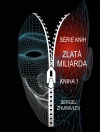Clinical and philosophical perspectives on key issues and debates in Lacanian psychoanalysis.
Lacan, Language, and Philosophy explores the linguistic turn in psychoanalysis taken by Jacques Lacan. Russell Grigg provides lively and accessible readings of Lacan and Freud that are grounded in clinical experience and informed by a background in analytic philosophy. He addresses key issues in Lacanian psychoanalysis, from the clinical (how psychosis results from the foreclosure of the signifier the Name-of-the Father; the father as a symbolic function; the place of transference) to the philosophical (the logic of the 'pas-tout’; the link between the superego and Kant’s categorical imperative; a critique of Žižek’s account of radical change). Grigg’s expertise and knowledge of psychoanalysis produce a major contribution to contemporary philosophical and psychoanalytic debates.
Spis treści
Acknowledgments
Introduction
Part 1 Psychosis, Neurosis, and the Name-of-the-Father
1. Foreclosure
2. The Father’s Function
3. Beyond the Oedipus Complex
4. Signifier and Object in the Transference
5. Regulating Psychoanalysis
Part 2 Analyzing Philosophers: Descartes, Kant, Ž i ž ek, Badiou, and Jakobson
6. Lacan and Badiou: Logic of the Pas-Tout
7. Kant and Freud
8. Built, the Law, and Transgression
9. Absolute Freedom and Radical Change: On Žižek
10. Descartes and the Subject of Science
11. Lacan and Jakobson: Metaphor and Metonymy
Notes
Bibliography
Index
O autorze
Russell Grigg is Associate Professor of Philosophy and Psychoanalytic Studies at Deakin University in Australia. He is the translator of The Seminar of Jacques Lacan: Book III: The Psychoses, 1955–1956 and The Seminar of Jacques Lacan: Book XVII: The Other Side of Psychoanalysis.












